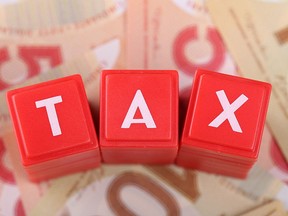Changes could necessarily mean a large tax level on brief-expression rental cash flow

We have been preparing a vacation to attend my niece’s wedding this summertime. My spouse, Carolyn, was speaking with a person who owns several quick-expression rental households. “Do you want a property with a shower or a bath?” the male requested. Due to the fact Carolyn is always looking to help save dollars, she asked, “What’s the distinction?” There was a pause, then the man replied, “Well, you have to have to stand up in the shower.”
This guy’s whole-time vocation is leasing out his homes. Late previous yr, draft legislation was released that modifications the tax principles for people who very own small-term rental housing. The new guidelines could create steep tax rates. Let me explain.
The policies
The authorities is anxious about the range of residential attributes that are utilised for small-expression rentals simply because these areas limit the provide of housing offered for buy or extensive-phrase rental, contributing to greater prices in general.
So the 2023 Slide Financial Assertion proposed new rules – comprehensive in draft laws launched Dec. 20, 2023 – to deny tax deductions for quick-expression rentals exactly where a taxpayer who owns a residence is not complying with municipal or provincial regulations.
Who is impacted by these modifications? You could be if you (1) have a residential home (2) supplied as a shorter-phrase rental (3) that is non-compliant. A household house is regarded to be all or any aspect of a property, condominium, condominium, cottage, cellular residence, trailer, houseboat or other property located in Canada. Which is a quite broad definition.
A limited-expression rental is one particular of the houses pointed out higher than that is supplied for rent for a lot less than 90 consecutive days. As for staying non-compliant, this will include any residence that is rented in a province or municipality that does not allow short-expression rentals or where by the jurisdiction demands a registration, licence or allow to run a short-time period rental and you do not comply.
So if you are caught renting out a non-compliant limited-phrase rental residence, what happens from a tax stage of view? You’ll be denied a tax deduction for all or portion of your bills linked to the property. The genuine amount denied is equal to your total charges for the home multiplied by a fraction, which is the quantity of days in the calendar year that your home was non-compliant, divided by the total number of times the property was a limited-term rental. Observe me?
Now, these policies came into impact Jan. 1, so if you’re submitting your 2023 tax return this thirty day period you never have to worry about having costs denied for 2023. But I desired to generate about this these days for the reason that, if you are non-compliant, some or all of the bills you’ve currently incurred in 2024 could be denied when you file your tax return future year. If the clock is ticking on your non-compliance, you may want to get issues in get now to stay clear of what could be a quite superior tax fee on your limited-phrase rental earnings for 2024 and later on a long time. Look at an illustration.
The case in point
Suppose you have a quick-term rental home and midway as a result of 2024 your municipality bans short-phrase rentals. This suggests you’d be non-compliant for fifty percent the calendar year. Let us also assume that you gain $80,000 in lease throughout 2024 and incur $50,000 of bills, leaving you with $30,000 of earnings. If you’re in the highest tax bracket in Ontario in 2024, you’d pay $16,060 in taxes on that financial gain.
Under the new principles, nevertheless, section of your $50,000 in fees will be denied since you ended up non-compliant for portion of the 12 months. The denied fees will equal $50,000 multiplied by the fraction 183/366 (183 out of 366 times of non-compliance in 2024, a leap calendar year, in our instance). That is, just one half, or $25,000 of expenditures, will be denied. The consequence? Your taxable earnings from the rental is no lengthier $30,000, but $55,000 ($30,000 moreover the $25,000 of denied charges). The tax owing on $55,000 would be $29,442.
Did you catch that? Considering the fact that your actual accounting financial gain was $30,000, and you’re paying $29,442 in taxes, your productive tax fee is 98.1 for each cent. It could easily exceed 100 per cent in lots of instances. Ouch.
The nuances
The great news? There’s a transitional rule for 2024 that will deem you to be in compliance with nearby and provincial procedures if you’re demanded to have a registration, licence or allow and you are in compliance with this on Dec. 31, 2024.
Be conscious, too, that you could experience GST/HST in situations wherever you transform a home from a taxable small-time period rental into an exempt household house. Discuss to a tax pro about this.
Lastly, the regulations allow for the Canada Income Company to reassess you with no currently being constrained to the usual reassessment time period to deny your deductions. Sorry about that.
Tim Cestnick, FCPA, FCA, CPA(IL), CFP, TEP, is an author, and co-founder and CEO of Our Household Place of work Inc. He can be reached at [email protected].






